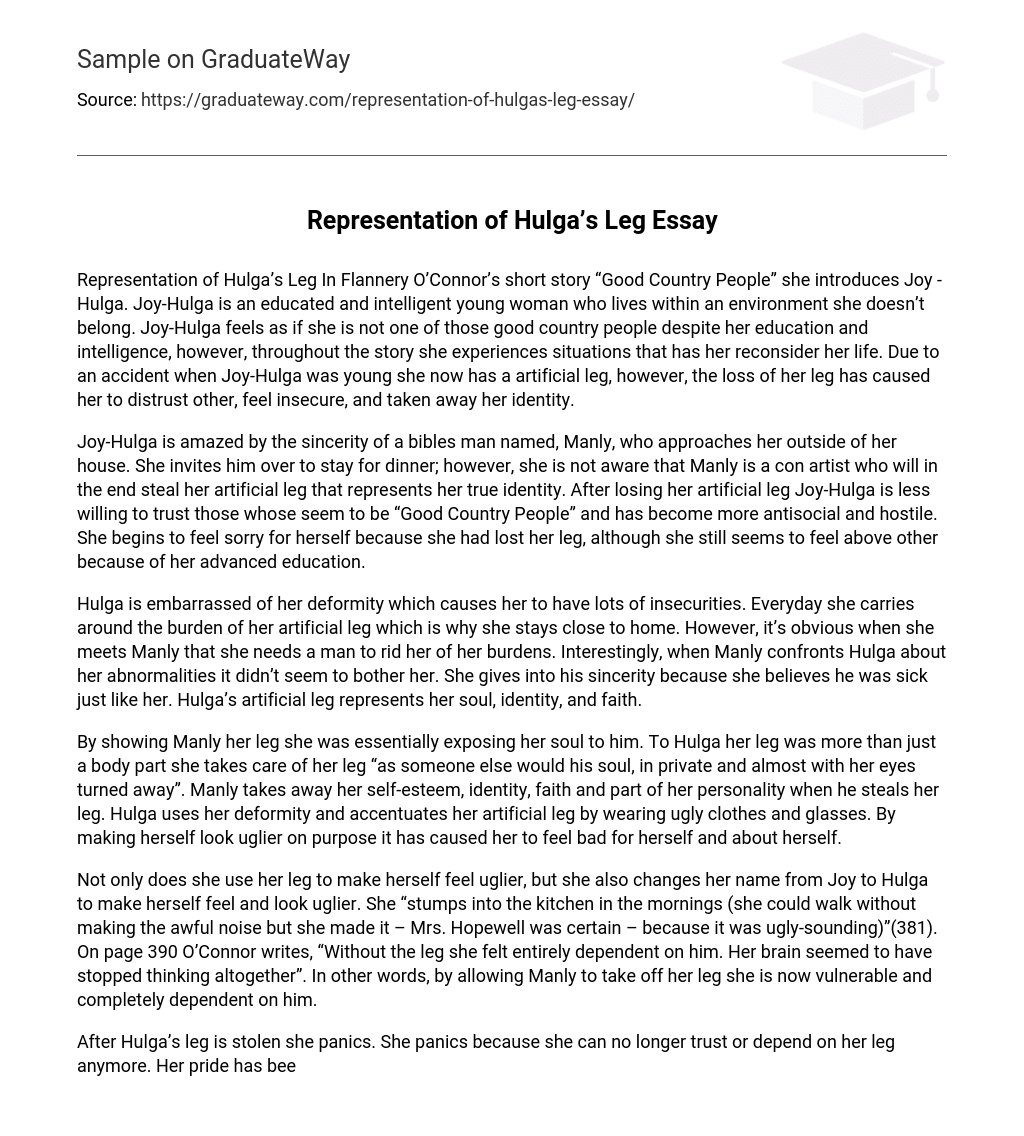Representation of Hulga’s Leg In Flannery O’Connor’s short story “Good Country People” she introduces Joy -Hulga. Joy-Hulga is an educated and intelligent young woman who lives within an environment she doesn’t belong. Joy-Hulga feels as if she is not one of those good country people despite her education and intelligence, however, throughout the story she experiences situations that has her reconsider her life. Due to an accident when Joy-Hulga was young she now has a artificial leg, however, the loss of her leg has caused her to distrust other, feel insecure, and taken away her identity.
Joy-Hulga is amazed by the sincerity of a bibles man named, Manly, who approaches her outside of her house. She invites him over to stay for dinner; however, she is not aware that Manly is a con artist who will in the end steal her artificial leg that represents her true identity. After losing her artificial leg Joy-Hulga is less willing to trust those whose seem to be “Good Country People” and has become more antisocial and hostile. She begins to feel sorry for herself because she had lost her leg, although she still seems to feel above other because of her advanced education.
Hulga is embarrassed of her deformity which causes her to have lots of insecurities. Everyday she carries around the burden of her artificial leg which is why she stays close to home. However, it’s obvious when she meets Manly that she needs a man to rid her of her burdens. Interestingly, when Manly confronts Hulga about her abnormalities it didn’t seem to bother her. She gives into his sincerity because she believes he was sick just like her. Hulga’s artificial leg represents her soul, identity, and faith.
By showing Manly her leg she was essentially exposing her soul to him. To Hulga her leg was more than just a body part she takes care of her leg “as someone else would his soul, in private and almost with her eyes turned away”. Manly takes away her self-esteem, identity, faith and part of her personality when he steals her leg. Hulga uses her deformity and accentuates her artificial leg by wearing ugly clothes and glasses. By making herself look uglier on purpose it has caused her to feel bad for herself and about herself.
Not only does she use her leg to make herself feel uglier, but she also changes her name from Joy to Hulga to make herself feel and look uglier. She “stumps into the kitchen in the mornings (she could walk without making the awful noise but she made it – Mrs. Hopewell was certain – because it was ugly-sounding)”(381). On page 390 O’Connor writes, “Without the leg she felt entirely dependent on him. Her brain seemed to have stopped thinking altogether”. In other words, by allowing Manly to take off her leg she is now vulnerable and completely dependent on him.
After Hulga’s leg is stolen she panics. She panics because she can no longer trust or depend on her leg anymore. Her pride has been ruined and her faith was broken. She has now been humiliated and her intelligence cannot help her in this situation. After being left in the hay loft she now has to fend for herself or ask for help. Meyer, Michael. The Compact Bedford Introduction to Literature: Reading, Thinking, Writing. Boston: Bedford/St. Martin’s, 2009. Print.





